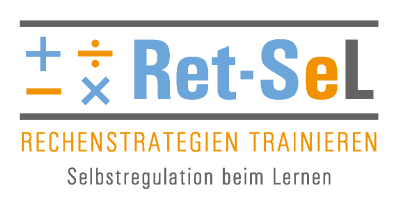Ret-SeL – Practicing computational strategies, selfregulated learning
Self-regulation, especially in elementary school arithmetic, plays a crucial role in academic achievement and motivation. The Ret-SeL project aims to investigate the differences in strategy use of primary school children in arithmetic, with a focus on children with learning and attention difficulties. This will allow targeted interventions to be developed based on these findings and provide learning support for children with learning difficulties in mathematics.
Funding
Own funds Professor Dignath
Project description
Self-regulation is the ability to plan, organize and control one's own learning. The ability to self-regulate learning can have a positive influence on academic performance and motivation to learn, as illustrated by the school closures caused by the COVID-19 pandemic. In addition, the ability to engage in self-regulated learning is highlighted as an important component for learning success in math.

Ret-SeL investigates how self-regulatory strategies operate in arithmetic in elementary school. It investigates how and why children differ in their strategy use in arithmetic. Specifically, the question is addressed why some children are able to solve tasks such as 287 + 198 with a calculation strategy, while other children have difficulties or choose incorrect solution strategies. In particular, using cognitive computational strategies, such as place-wise and step-wise computation, allow children to be flexible and adaptive in their approach to mathematical tasks in order to solve computational tasks efficiently (Heinze et al., 2009). To select the most appropriate computational strategy and adapt the learning process, metacognition is needed (Flavell, 1979). It has been shown that after the introduction of written arithmetic in third grade, students often use this as a "universal strategy" that is independent of their individual abilities and the demands of the tasks (Torbeyns & Verschaffel, 2016). This raises the question what factors influence children's choice of calculationstrategy.The study also addresses the thoughts, feelings, and attitudes associated with these differences in strategy use.
The goal of the project is to specifically examine children with learning and attention difficulties to identify possible differences in their self-regulation and strategy use. Based on the results of the study, an intervention will be developed to help those children who need special support.






![[Translate to English:] [Translate to English:]](/storages/ifs-ep/_processed_/8/5/csm_AdobeStock_412860748_9a2dbb816c.jpeg)
